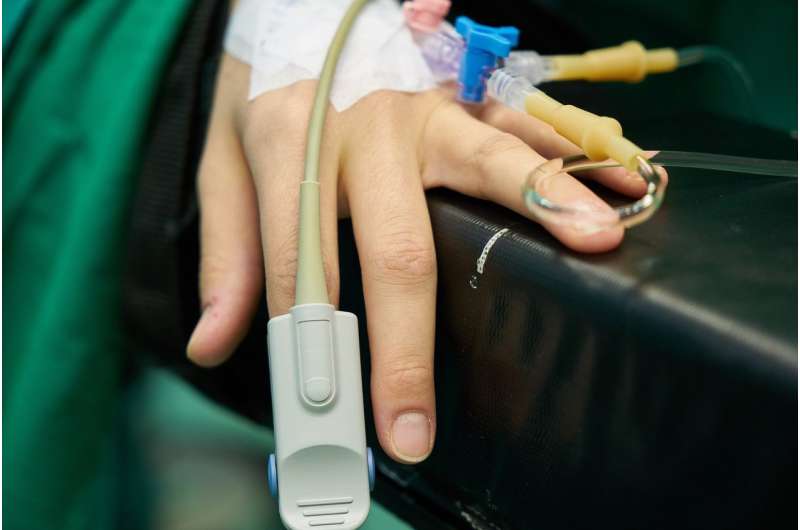Team spots clue to rare lung and kidney diseases

Pulmonary-renal syndrome (PRS) refers to a group of rare but potentially fatal conditions that nearly always are caused by a misguided attack by the body's immune system on the lungs and kidneys. Coughing up blood and blood in the urine are telltale signs.
Treatment with corticosteroids and immunosuppressant drugs can be effective if begun before respiratory and kidney failure occur. But because scientists don't know what triggers the auto-immune attack, they can't identify patients at risk or prevent PRS before it starts.
Now researchers at Vanderbilt University who helped define the biochemical basis for the best-known example of PRS, Goodpasture syndrome, have identified a new "auto-antibody" in the blood of patients with the disease that is present even before symptoms occur.
The discovery, reported in the November issue of the Journal of the American Society of Nephrology, provides new information about how PRS develops, at least in a subset of patients, and thus how it one day may be prevented.
"These findings are a major medical advance championed by Scott McCall, MD, Ph.D., a young physician-scientist in training," said the paper's senior author, Billy Hudson, Ph.D., the Elliott V. Newman Professor of Medicine and director of the Center for Matrix Biology in the Vanderbilt University School of Medicine.
McCall, the paper's first author, is a graduate of the Vanderbilt Medical Scientist Training Program in residency training in Internal Medicine. He also is a member of the Harrison Society, which promotes medical research as a career discipline.
Hudson is internationally known for his studies of the basement membrane, a specialized form of extracellular matrix that fills the space between cells and guides the function of most tissues in the body. Last month he received the 2018 Distinguished Investigator Prize from the International Society for Matrix Biology.
Over the past 45 years he and his colleagues helped define the structure and function of "smart scaffolds" that provide tensile strength to the basement membrane of the glomeruli, the filtering units of the kidneys, and which bind molecules essential for guiding cell growth and cell-to-cell communication.
These scaffolds consist of a network of structural proteins called collagen IV that are attacked by the immune system in the kidneys and lungs of patients with Goodpasture syndrome.
In an effort to pinpoint the nature of the attack, Hudson and his colleagues discovered a new chemical bond, sulfilimine, which links the collagen IV molecules together in head-to-head-like fashion. The formation of the bond is promoted by the enzyme peroxidasin.
Previously the Hudson group discovered auto-antibodies in patients with Goodpasture's syndrome that attack the globular head of the collagen IV molecule.
In their latest report, McCall and his colleagues detected auto-antibodies against peroxidasin in patients both before and at the time of active disease symptoms. The autoimmune attack prevents formation of the sulfilimine bond.
While further work is needed to understand more precisely the role these auto-antibodies play in Goodpasture syndrome, they represent a new target for treating and possibly preventing this and other forms of PRS, the researchers concluded.
More information: A. Scott McCall et al. Inhibitory Anti-Peroxidasin Antibodies in Pulmonary-Renal Syndromes, Journal of the American Society of Nephrology (2018). DOI: 10.1681/ASN.2018050519


















